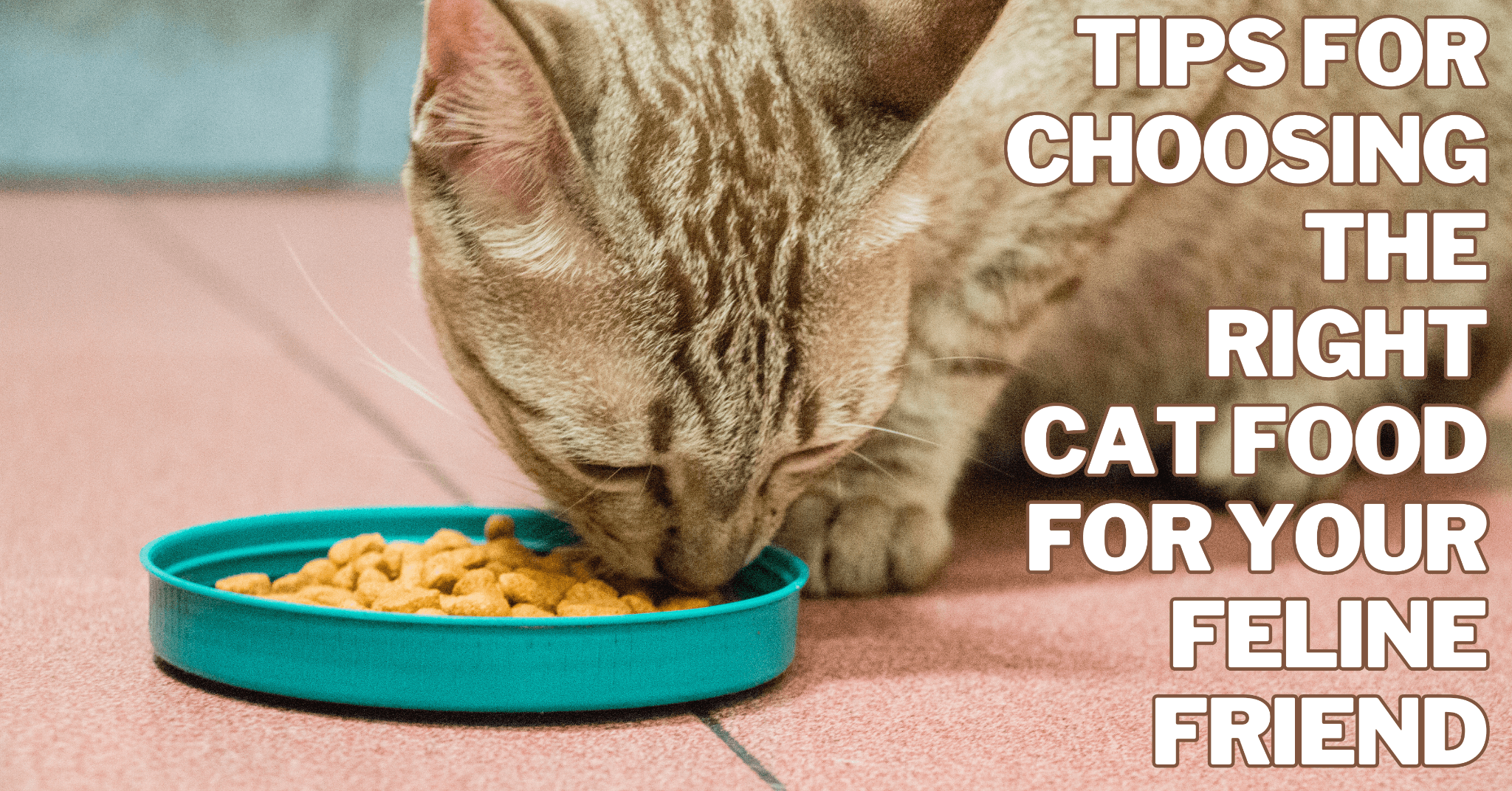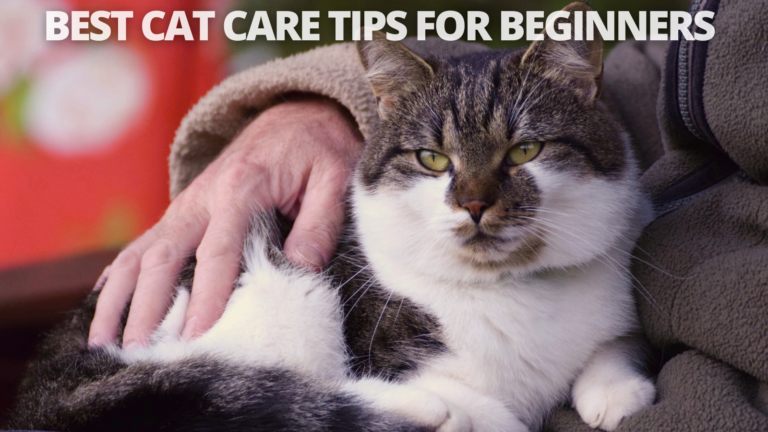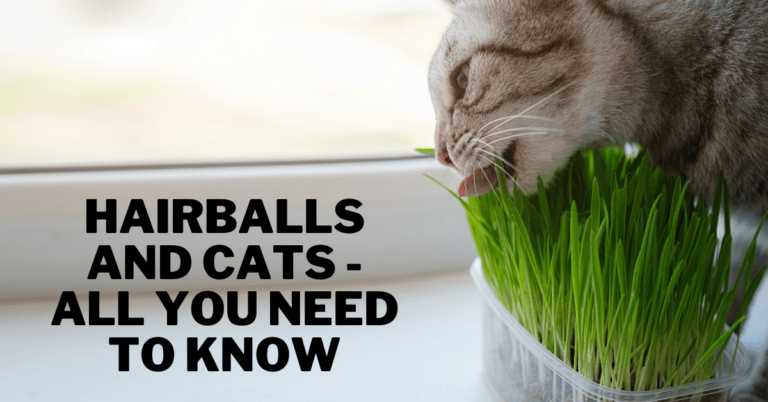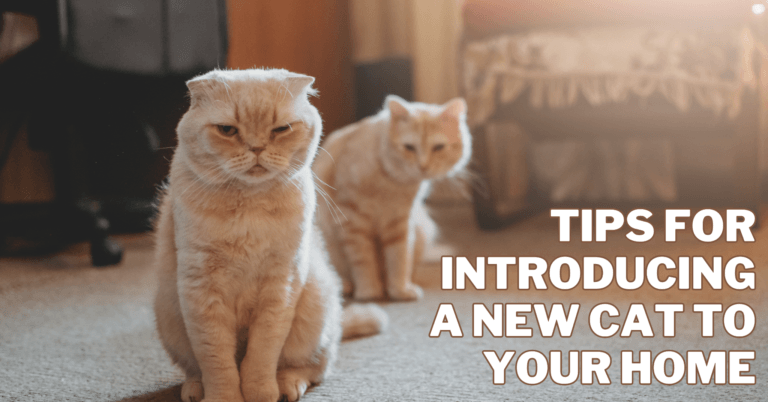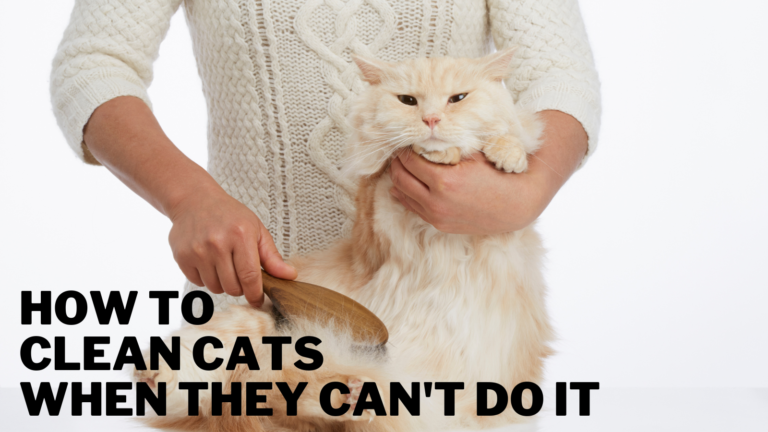Best Tips For Choosing The Right Cat Food
Best Tips For Choosing The Right Cat Food
Choosing the right cat food is one of pet owners' most important decisions regarding our beloved feline companions.
A well-balanced and nutritious diet is essential for your cat's health and well-being. However, selecting the best cat food can take time and effort with so many available options.
This article will explore some valuable tips and guidelines to help you make an informed decision when choosing the perfect cat food for your furry friend.
From understanding your cat's nutritional needs to deciphering food labels and ingredients, we will equip you with the knowledge to provide your feline companion with the nourishment they deserve.
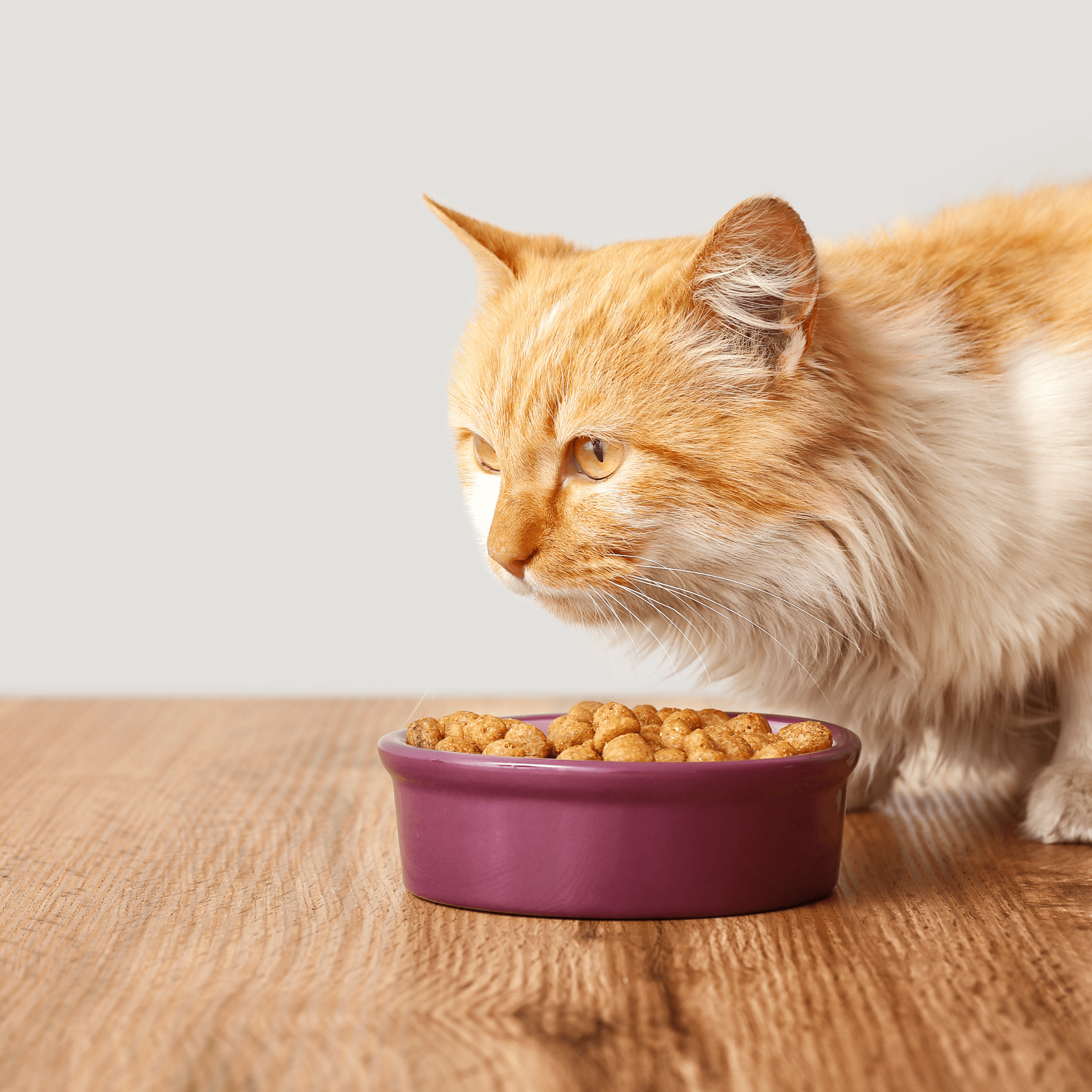
Importance Of Choosing The Right Cat Food
Providing the right cat food is mandatory for several important reasons, as it directly impacts your cat's overall health and well-being.
Cats have specific dietary requirements that are different from other animals. They are obligate carnivores, requiring a diet rich in animal-based proteins.
Providing the right cat food ensures they receive the essential nutrients, such as amino acids, vitamins, and minerals, needed for optimal growth, energy, and immune function. Obesity is a significant concern among cats, and the right cat food can play a vital role in weight management.
Overweight cats risk various health issues, including diabetes, joint problems, and heart conditions. The appropriate cat food will help maintain a healthy weight and prevent obesity-related complications.
The right cat food can help prevent or manage various health issues common in cats, such as urinary tract problems, dental issues, and skin allergies. Specialized diets can address specific health conditions and support your cat's overall health.
A well-balanced diet provides the necessary energy for your cat's daily activities and playfulness. It contributes to their vitality and ensures they stay active and engaged in their environment.
The right cat food contains essential fatty acids which promote a healthy coat and skin. It helps reduce shedding and minimizes skin irritations and allergies.
High-quality cat food with easily digestible ingredients supports your cat's digestive system. It reduces the risk of gastrointestinal problems and helps maintain regular bowel movements.
Proper nutrition during your cat's early years contributes to its long-term health and longevity. Feeding the right cat food throughout its life stages ensures that it will age gracefully and maintain good health into its senior years.
A well-nourished cat is more likely to be mentally sharp and alert. Proper nutrition can positively impact your cat's cognitive function and overall mood.
Providing the right cat food is a fundamental responsibility for every cat owner. It directly influences your cat's physical health, mental well-being, and overall quality of life.
By selecting cat food that meets their nutritional needs, you can ensure your feline friend lives a happy, healthy, and fulfilling life.
Tips For Choosing The Right Cat Food
Choosing the right cat food is vital for your feline friend's health and well-being. With so many options available, finding the best one can be overwhelming.
This guide offers valuable tips to help you navigate the various cat food choices and select the most suitable option for your beloved pet.
By considering your cat's age, nutritional needs, and specific health requirements, you can make an informed decision supporting their happiness and longevity.
Here are the tips you should consider before choosing cat food:

1. Read The Ingredients
The ingredients are crucial in choosing the right cat food. High-quality protein sources should be at the top of the list, indicating that the food is rich in essential nutrients for your cat's health.
Look for specific meat, poultry, or fish ingredients rather than generic terms like “meat by-products” or “animal digest,” which may not provide the necessary nutrients.
Avoid foods that contain fillers like maize, wheat, or soy because they are low in nutritional content and might cause stomach problems.
Artificial additives, colours, and preservatives should also be minimized or avoided, as they may harm your cat's health.
Additionally, be cautious about cat foods with excessive carbohydrates, as cats are obligate carnivores and do not require large amounts of carbohydrates.
A balanced and nutritious cat food should prioritize high-quality protein and healthy fats to support your cat's muscle maintenance, energy levels, and overall well-being.
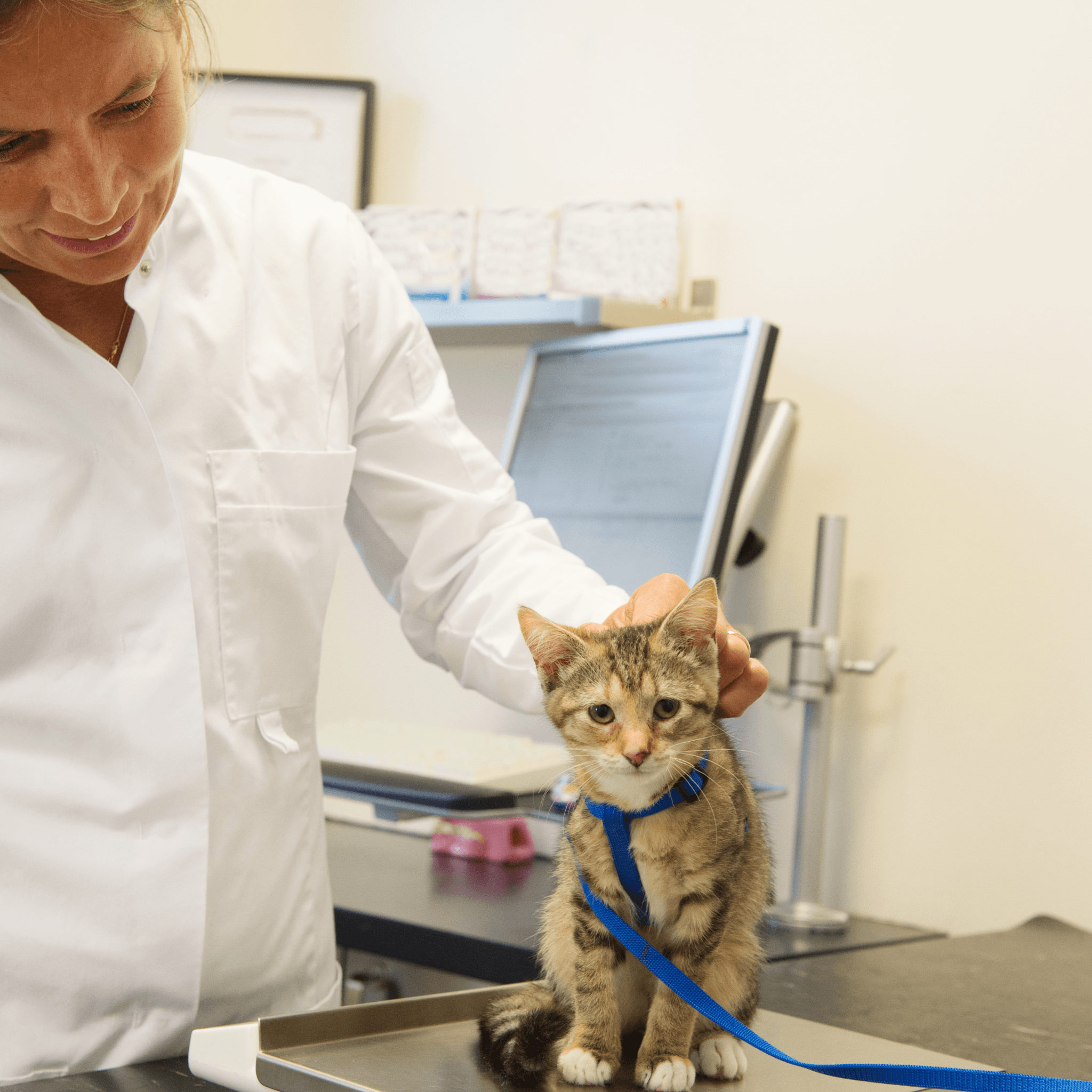
2. Consider Your Cat's Age And Health
Your cat's age and health are essential in selecting the right cat food. In their growing stage, Kittens require higher levels of protein, fat, and essential nutrients to support their rapid development.
Look for specially formulated kitten food that meets their unique needs. Adult cats, on the other hand, benefit from a well-balanced diet that helps maintain their weight and overall health.
Look for cat food labelled “adult maintenance” or “all life stages” for adult cats. Senior cats have specific dietary needs, such as lower calorie content to prevent obesity and support joint health.
Foods designed for senior cats often contain added supplements like glucosamine and chondroitin to aid in joint function.
Moreover, cats with certain health conditions, such as diabetes, urinary issues, or food allergies, may require specialized diets to manage them effectively.
Always consult with your veterinarian to determine the most appropriate cat food for your feline friend's age and specific health needs, as they can provide tailored recommendations based on your cat's requirements.
3. Check For AAFCO Approval
AAFCO approval is a crucial issue to consider when purchasing cat food. The Association of American Feed Control Officials establishes nutritional standards and guidelines for pet foods to ensure they satisfy cats' minimal nutritional needs.
Look for cat foods labelled with a statement such as “Formulated to meet the AAFCO Cat Food Nutrient Profiles” or “AAFCO feeding trials” on the packaging.
This indicates that the food has undergone rigorous testing and meets the nutritional adequacy standards established by AAFCO.
When a cat food meets AAFCO's standards, it is considered complete and balanced, containing all the essential nutrients necessary for your cat's well-being.
Be cautious of cat foods that do not have this AAFCO approval, as they may not provide the necessary nutrients your cat needs, leading to potential health issues over time.
Remember that while AAFCO approval is crucial, it is still important to consider your cat's needs, age, and health conditions when selecting the best cat food.
Consulting with your veterinarian can help you make the right choice for your feline friend's specific requirements.

4. Assess Wet vs Dry Cat Food
When choosing cat food, it's essential to consider the pros and cons of both wet and dry options.
Since wet cat food often contains more moisture than dry food, it can keep your cat hydrated, especially if they don't drink much water.
Cats prone to urinary tract problems or those who do not have easy access to water throughout the day may benefit the most from it.
On the other hand, dry cat food is typically easier to feed and has a longer shelf life. The crunchy texture of dry kibble can also help promote dental health by reducing tartar buildup.
Some cats may prefer one type of food over another, so offering a combination of wet and dry cat food can cater to their tastes.
Additionally, rotating between wet and dry food can provide variety in their diet, which may be more enticing for picky eaters.
Ultimately, the best choice depends on your cat's health, age, and preferences. Making an informed choice and ensuring that your cat food satisfies your feline friend's nutritional needs can be facilitated by speaking with your veterinarian.

5. Consider Food Allergies Or Sensitivities
If your cat has a history of allergies or sensitivities, it's crucial to be extra cautious when selecting their food.
Look for cat food formulas specifically designed for cats with allergies or sensitivities, labelled as limited ingredient diets or hypoallergenic options.
These formulations typically feature fewer ingredients, reducing the chances of triggering allergic reactions.
Common allergens in cat food include certain proteins like chicken, beef, or fish and grains like wheat or corn.
Opting for limited-ingredient or hypoallergenic cat food can eliminate potential allergens and provide your cat with a safer and more suitable diet.
Remember to carefully read the ingredient list and consult with your veterinarian to identify any specific allergens your cat should avoid.
Suppose you suspect your cat has a food allergy but are unsure of the allergen. In that case, your vet may recommend an elimination diet to pinpoint the trigger and guide you in selecting the most appropriate cat food for your feline friend's needs.
6. Research The Brand Reputation
Researching the brand reputation is crucial in choosing the right cat food for your feline friend. Look for well-established and reputable cat food brands with a history of producing high-quality products.
Check for customer reviews and feedback online to gauge the satisfaction level of other cat owners using the brand's products.
Positive reviews and recommendations from other cat owners can indicate the brand's reliability and trustworthiness. Additionally, consider the brand's commitment to quality and safety.
Look for brands that follow rigorous testing and quality control measures to ensure their cat food's safety and nutritional value.
Reputable brands often have clear information about their sourcing and production processes, giving you more confidence in their products.
Avoid brands with a history of recalls or negative customer experiences, as this may indicate potential issues with the safety or quality of their cat food.
You may provide your cat with a diet that satisfies their dietary requirements and promotes their general health and well-being by selecting a recognized brand with a good reputation.
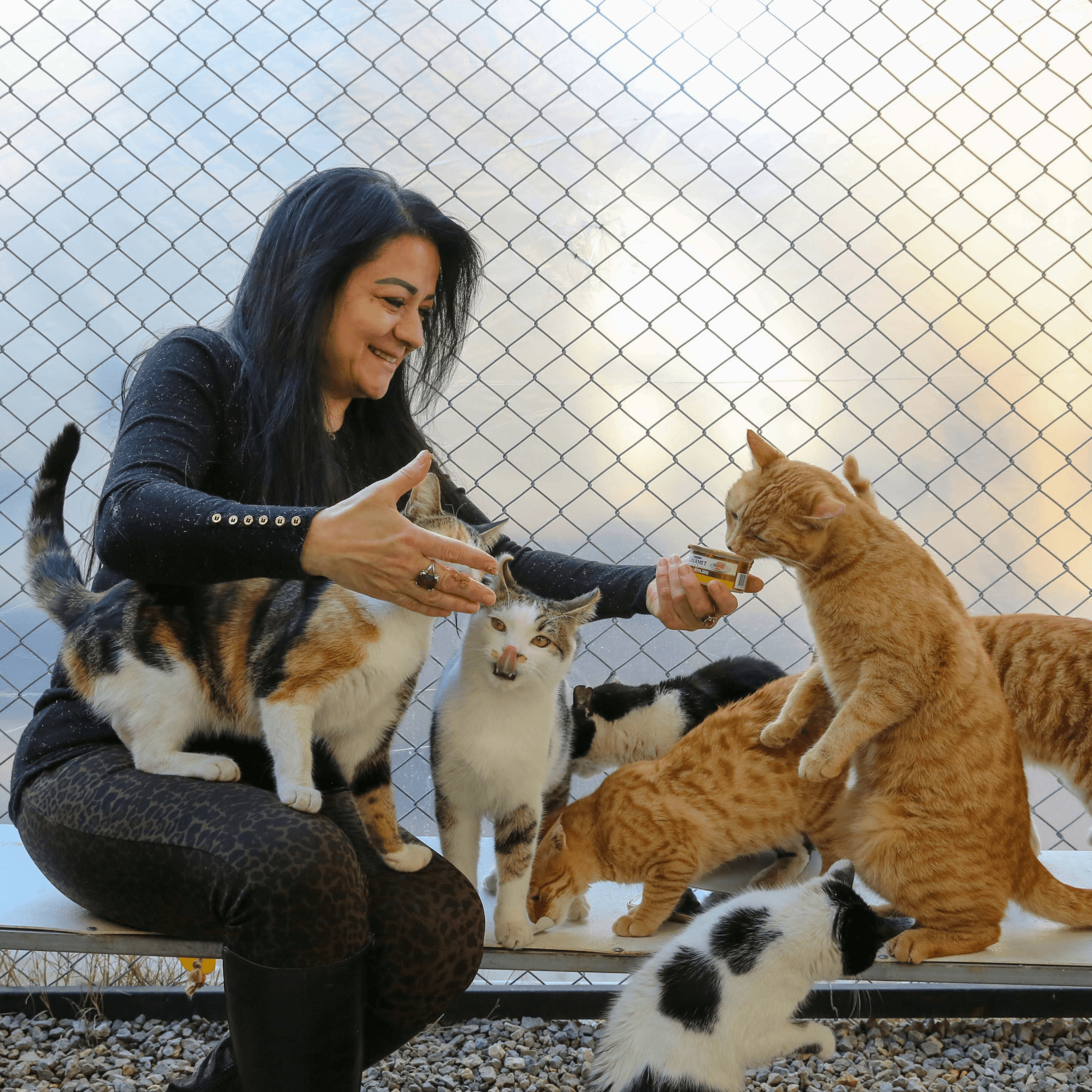
7. Consider Your Cat's Activity Level
When choosing the right cat food for your feline friend, it's essential to consider their activity level.
Cats with high activity levels, such as outdoor or highly playful indoor cats, have more energy needs than more sedentary cats.
For these active kitties, you should look for cat food formulas that are specially formulated to provide the necessary energy and nutrients to support their active lifestyle.
These formulas are often labelled “high-energy” or “active lifestyle” and may have higher protein and fat content to meet the increased energy demands.
On the other hand, if you have a more laid-back and less active cat, you may choose cat food formulated for less active or indoor cats, designed to maintain their weight and provide appropriate nutrition without excess calories.
By considering your cat's activity level and choosing a cat food formula that matches their needs, you can ensure they receive the right balance of nutrients to support their overall health and well-being.
Consulting with your veterinarian can also provide valuable insights into the best cat food options based on your cat's specific activity level and lifestyle.
8. Understand Feeding Instructions
Understanding the feeding instructions on the cat food packaging is crucial to ensure that your feline friend receives the appropriate amount of nutrition.
The feeding instructions typically guide portion sizes and frequency based on your cat's size, age, and activity level.
It's important not to overfeed or underfeed your cat, as both can lead to health issues. Follow the recommended portion sizes closely, and consider dividing the daily allowance into multiple meals throughout the day, especially for kittens or cats with smaller stomachs.
Keep in mind that the feeding guidelines are just that – guidelines. Each cat is unique, and individual dietary needs may vary.
Factors such as metabolism, weight, and overall health can influence how much food your cat requires.
Regularly monitor your cat's weight and body condition, and adjust the portion sizes accordingly to maintain a healthy weight.
Also, consult your veterinarian if you have any concerns about your cat's diet or need personalized recommendations based on their specific needs.
Understanding and following the feeding instructions can meet your cat's nutritional needs, promoting optimal health and well-being.
9. Be Mindful Of Your Budget
Being mindful of your budget is important when selecting the right cat food for your furry friend.
While providing high-quality nutrition is crucial, it doesn't mean you have to break the bank. Fortunately, cat food options are available at various prices that can still offer excellent nutritional value.
Look for well-established brands that offer a good balance between quality and affordability.
Comparing prices and sizes of different cat food products can help you find the best value for your money. Consider buying cat food in larger quantities, as it can be more cost-effective in the long run.
Additionally, watch for sales, discounts, or bulk-buying options that some pet stores and online retailers may offer.
Remember that investing in your cat's health through proper nutrition can save you money on veterinary bills in the future.
While it's essential to be budget-conscious, prioritize your cat's nutritional needs to ensure they lead a healthy and happy life.
By striking the right balance between quality and budget, you can find cat food that meets your feline companion's dietary requirements without putting a strain on your finances.
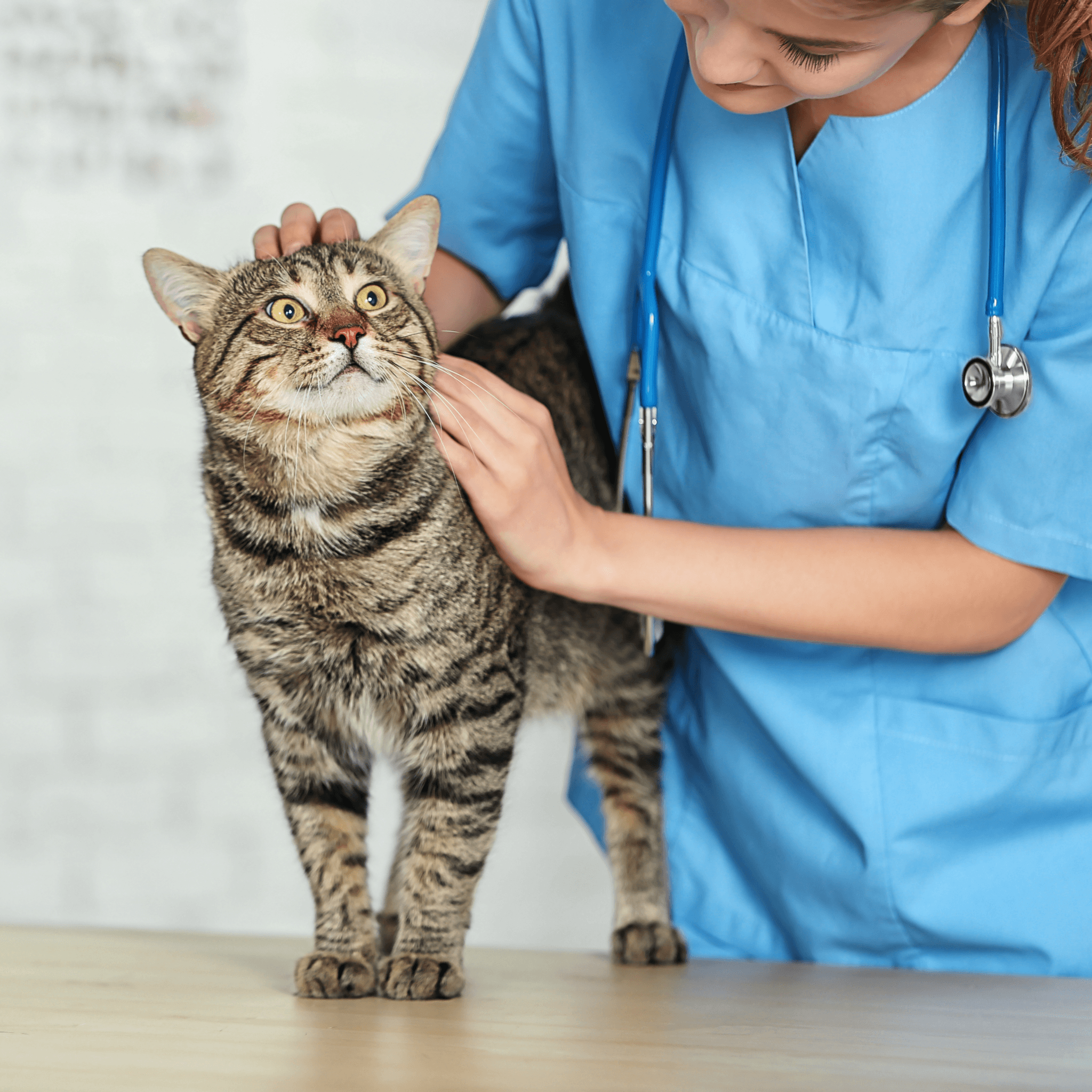
10. Consult Your Veterinarian
Consulting your veterinarian is crucial in choosing the best cat food for your feline friend.
Veterinarians are trained to assess your cat's unique health and dietary requirements and can provide personalized recommendations.
They can consider factors such as your cat's age, weight, activity level, and any existing health conditions when advising on the most suitable food.
If your cat has food allergies, sensitivities, or a history of digestive issues, your veterinarian can guide you toward hypoallergenic or limited-ingredient diets that may alleviate potential problems.
Additionally, if you're considering switching your cat's food, your veterinarian can guide a gradual transition to prevent digestive upset.
Consulting your veterinarian ensures your cat's nutritional needs are met, promoting their overall health and well-being.
They may also provide helpful information about the various cat food options and address any queries or worries about feeding your cat.
Building a strong partnership with your veterinarian can improve your cat's long-term health and happiness.
11. Avoid Human Foods
Feeding human food to cats is generally discouraged, as many common ingredients in human meals can harm feline health.
Certain foods like onions, garlic, grapes, chocolate, caffeine, and alcohol can be toxic to cats and may lead to serious health issues or even be fatal.
Additionally, some human foods may be high in fats, sugars, or salts, leading to obesity and other health problems in cats.
Cats have unique dietary requirements, and their digestive systems are not designed to handle certain human foods.
Feeding human food to cats may also lead to nutritional imbalances and deficiencies, as these foods may not provide the essential nutrients that cats need for optimal health.
Sticking to well-balanced and nutritionally complete cat food specifically formulated to meet their dietary needs is best.
Suppose you're unsure whether a particular human food is safe for your cat. In that case, it's always best to consult your veterinarian to ensure you make safe and appropriate choices for your feline friend's diet.
Conclusion
In conclusion, choosing the right cat food is a crucial responsibility for cat owners. A balanced and nutritious diet is essential for your feline friend's overall health and well-being.
Remember to read the ingredients carefully and opt for high-quality protein sources while avoiding fillers and artificial additives.
Consider your cat's age, health condition, and activity level to select a food that meets their specific needs.
Checking for AAFCO approval ensures the food is complete and balanced for your cat's requirements. Opt for limited ingredient or hypoallergenic formulas if your cat has food allergies or sensitivities.
Remember both wet and dry food options, as they offer different benefits and can be combined to cater to your cat's preferences.
While budget is important, prioritize providing a high-quality diet within your means. If you have any doubts or uncertainties, don't hesitate to consult your veterinarian for personalized recommendations.
By following these tips, you can ensure that your feline friend enjoys a wholesome and satisfying diet that contributes to their overall health and happiness.
I trust you enjoyed this article on Best Tips For Choosing The Right Cat Food. Please stay tuned for more blog posts shortly. Take care!
JeannetteZ
>>>Please click here to read my all-inclusive article about the Best Cat Care Tips For Beginners<<<
Your Opinion Is Important To Me
Do you have thoughts, ideas, or questions? I would love to hear from you. Please leave your questions, experiences, and remarks about Best Tips For Choosing The Right Cat Food in the comments below. You can also email me at Jeannette@Close-To-Nature.org.
Disclosure
This post may contain affiliate links. As an Amazon Associate and other affiliate programs, I earn from qualifying purchases at no extra cost to you. Please read my full affiliate disclosure.
You might also enjoy these blog posts:
The Role Of Cats In Ancient Civilizations
Best Senior Cat Care Tips And Advice
Best Tips For Maintaining A Healthy Coat In Horses

